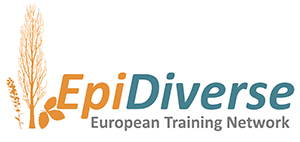My research focuses on ecological and evolutionary responses to environmental change at the base of the food web—involving macroalgae and seagrass, both of which play a prominent ecological and economical role in the fjords of Norway. My long-term research goal is to understand functional-trait variation at the molecular level and to apply this knowledge towards sustainable growth of economically important algae, and towards the management of kelp forests and seagrass meadows under the impact of climate change. Epigenetics and its potential for rapid adaptation to environmental change is the latest contribution to the field of marine ecology and evolution. Transferring this field to marine macrophytes allows to understand trait variation and biodiversity from an entirely new perspective. I aim to apply this knowledge towards societally relevant questions related to coastal ecosystem management and protection in light of increasing human impact and to sustainable cultivation of kelp along Arctic shores.
Abstract
Priming – epigenetic memory in kelp and seagrass for enhanced restoration success and food security in future oceans
Marine macrophytes, including seagrasses and macroalgae, form the basis of diverse and productive coastal ecosystems that deliver important ecosystem services and are targets for a new sustainable blue bio-economy. However, seagrass meadows and macroalgal forests are threatened by a variety of anthropogenic stressors. Most notably, rising temperatures and marine heatwaves are already devastating these ecosystems around the globe, and threaten production security of farmed kelp. I will present recent studies that show that seagrass and macroalgae can become less susceptible to heat events once they have been primed thermally. Early evidence in clonal seagrass shows that heat-resistance, and the formation of a stress memory, partly relies on DNA methylation marks that switch state and permanently trigger stress-preventive genes after the first stress exposure. Thus, the priming-induced formation of epigenetic stress memories have considerable potential for both ecosystem restoration and macroalgae farming to immediately improve performance and stress resistance and, thus, to enhance restoration success and production security under environmental challenges. I conclude with specific research gaps that need to be filled before priming can be established as new bio-engineering technique in these primary producers.





